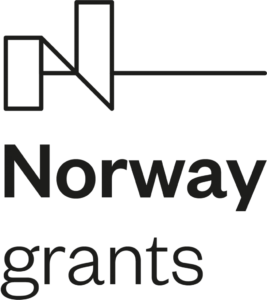Większości kwalifikowane w niewiększościowych mechanizmach: w kierunku nowej teorii superwiększości w sądowej kontroli konstytucyjności prawa
Project Badawczy 020/37/K/HS5/02758
Opis Projektu
Współczesne demokracje postrzegają Konstytucje jako sposób kontrolowania władzy. Konstytucje gwarantują zestaw podstawowych praw, ustanawiają demokratyczne zasady dotyczące procedur wyborczych i zapewniają mniejszościom ochronę przed „tyranią większości”. Co jednak uniemożliwia parlamentom naruszanie konstytucji? Jaki jest środek zaradczy przeciwko niekonstytucyjnej ustawie?
Konstytucjonalizm twierdzi, że sędziowie oferują bezstronny scenariusz gwarantujący nadrzędność Konstytucji w tak zwanej „sądowej kontroli konstytucyjności”. Sądowa kontrola konstytucyjności może być przeprowadzana przez każdego sędziego w kraju (model amerykański) lub przez jeden Trybunał Konstytucyjny, lub inne sądy pełniące taką funkcję (model europejski / skoncentrowany).
Sądowa kontrola konstytucyjności jest środkiem zaradczym mającym na celu zapobieganie problemom „majoritaryzmu”. Paradoksalny jest jednak fakt, że pod koniec obrad sądy prowadzące sądową kontrolę konstytucyjności głosują w celu podjęcia ostatecznego rozstrzygnięcia. Ten sam mechanizm (głosowanie większościowe), który jest postrzegany z nieufnością na arenie parlamentarnej, jest stosowany w ramach kontroli sądowej.
Kraje takie jak Stany Zjednoczone (w stanie Nebraska, Ohio i Dakota Północna), Meksyk, Peru, Czechy i Polska (przejściowo w 2015 r.) wymagały i częściowo dalej wymagają osiągnięcia większości kwalifikowanej podczas sądowej kontroli konstytucyjności. Doktryna prawna stworzyła kategorie wyjaśniające każdy aspekt kontroli sądowej, jednak zignorowała istnienie większości kwalifikowanej. Brak jakiejkolwiek teorii wyjaśniającej to zjawisko jest głównym powodem podjęcia próby realizacji niniejszego projektu badawczego.
Pojawia się pytanie, dlaczego tak ważna funkcja, jak większość wymagana w celu unieważnienia ustawy pozostaje niezbadana? Istnieją ku temu dwa główne powody. Po pierwsze, nie opracowano żadnej istotnej teorii wyjaśniającej większości kwalifikowane, ponieważ większość zwykła wydaje się „naturalna”. Po drugie, pomimo tego, że kilku autorów podjęło się analizy tego tematu, to zrobiło to jedynie z perspektywy lokalnej. Istniejąca literatura wyjaśnia jedynie działanie tego mechanizmu w danym kraju, lecz nie formułuje teorii, czym jest ten mechanizm, jakie jest jego podłoże teoretyczne i czy takie większości spełniają swoje cele, czy też utrudniają funkcjonowanie sądów. W związku z tym niniejszy projekt badawczy ma na celu opracowanie nowej teorii dotyczącej kontroli konstytucyjnej wyjaśniającej wyżej opisaną tematykę. Rezultaty badań zostaną opublikowane w monografii na badany temat.
Badania zostaną przeprowadzone w trzech fazach. W fazie pierwszej stworzone zostaną ramy teoretyczne dotyczące tego zjawiska, w tym poszczególne kategorie, terminologia oraz wyjaśnione zostaną podstawowe powody stosowania większości kwalifikowanej. Celem projektu będzie udowodnienie, że większość kwalifikowana funkcjonuje jako „deferential mechanism” (wskaźnik zapewniający, że sądy poddają się demokratycznie wybranemu parlamentowi). Podczas realizacji projektu zostanie zademonstrowane, że mechanizmy te nie tylko zmniejszają napięcia demokratycznej sądowej kontroli konstytucyjności, ale także zobowiązują do budowania konsensusu w orzecznictwie konstytucyjnym. Drugim etapem będzie zastosowanie wszystkich utworzonych kategorii do istniejących modeli większości kwalifikowanej i zrozumienie, poprzez analizę ich funkcjonowania, czy utrudniają kontrolę sądową i w jakim stopniu wymuszają „parliamentary deference„. Trzecim etapem projektu będą prace nad monografią.
Metodologia
Projekt wykorzystuje metody: teoretyczno-prawną oraz dogmatyczno-prawną, jak również tzw. analizę koncepcyjną (conceptual methodology).
Wyniki badań (miesiące 1-3)
Pierwsze miesiące projektu badawczego poświęcono na pogłębienie przeglądu literatury dotyczącej teorii większości w kontroli sądowej. Przeprowadzone badania wykazały, że teoria większości w kontroli sądowej jest w dużej mierze tematem niezbadanym, mimo że opracowano pewne konkretne publikacje dotyczące takiej większości w konkretnych krajach.
Raport dotyczący rezultatów badań (miesiące 4-15): postępy w trakcie drugiego roku realizacji projektu
W ramach projektu opracowano koncepcyjny model analizy superwiększości w prawie porównawczym. Superwiększości zostały podzielone na dwie kategorie: te, które przekazują uprawnienia do decydowania demokratycznie wybranemu ustawodawcy, określane jako „deferential superwiększości” oraz te, które wymagają superwiększości do podjęcia każdej decyzji, zwane „superwiększościami decyzyjnymi”. Ponadto zidentyfikowano różne zmienne, które mają znaczenie przy analizie skuteczności superwiększości. Zmienne te obejmują źródło prawnego umocowania superwiększości, ich wielkość, rodzaj wymaganego głosowania, wartość precedensową, przyczyny wprowadzenia superwiększości oraz sposób ich wprowadzenia.
W trakcie przechodzenia do fazy prawoznawstwa porównawczego projektu udało się zidentyfikować obecność (obecną lub przeszłą) superwiększości w następujących krajach: Stany Zjednoczone (Ohio w 1912 roku, Dakota Północna w 1919 roku i Nebraska w 1920 roku), Kostaryka (1949 rok), Tajwan (1958-2022 rok), Peru (1982 rok, a następnie 1995 i 2002 rok), Korea Południowa (1972, 1980 i 1987 rok), Indie (1976-1977 rok), Salwador (1984 rok), Republika Czeska (1993 rok), Meksyk (1994 rok), Liban (1993 rok), Dominikana (2010 rok), Polska (2015 rok) i Gruzja (2016 rok). Z uwagi na dużą liczbę jurysdykcji, wybrano konkretne kraje, które zapewniały różnorodność ram instytucjonalnych oraz podejść do tworzenia reguł superwiększości. Następnie rozpoczęto ocenę ich efektywności w oparciu o wcześniej opracowane podstawy koncepcyjne. Wnioski porównawcze zostały wyciągnięte.
W okresie od 4 do 15 miesiąca realizacji projektu osiągnięto kilka istotnych rezultatów. Artykuł pt. ” Judicial Review of Supermajority Rules Governing Courts’ Own Decision-Making: A Comparative Analysis” został opublikowany w Global Constitutionalism (Cambridge), natomiast drugi artykuł pt. ” Control and Paralysis? A Context-Sensitive Analysis of Objections to Supermajorities in Constitutional Adjudication” został zaakceptowany do publikacji w International Journal of Constitutional Law.
Konferencje naukowe
- (2023) YCC 12th Annual Conference, Miami, paper “Does Supermajority Rules in Constitutional Adjudication Lead to Court Paralysis: A Comparative Analysis,” Panel “Judicial decision-making and adjudication in comparative perspective”. 28/10/2023.
- (2023) European Consortium for Political Research (ECPR), paper “Voting protocols as informal judicial institutions: a case study of its perils in Mexico,” Panel “Informality
and Institutional Design of Judicial Bodies.” 04/09/2023. - (2023) International Association of Public Law Annual Conference, Panel “Decision-making in Constitutional Courts: Perspectives from Latin America and Oceania”, Wellington University, July 5, Paper “Informal institutions and voting protocols: a look behind the shadows”. 05/07/2023.
- (2023) Socio-Legal Studies Association Conference 2023. Paper “Can Constitutional Court Presidents become too powerful? Lessons from Mexico’s judicial politics”. Stream “Constitutionalism in developing democracies”. Ulster University, UK. 05/04/2023.
- (2022) 11th Annual YCC Global Conference, Boston, Northeastern University. Paper “A comparative analysis on the Mexican supermajority to strike down legislation: Between deference and paralysis”. Panel: Comparative Constitutional, Judicial and Appellate Review. 08/10/2023
- (2022) “Spielräume des Rechts- Margins in/of Law”, German Chapter of the International Society of Public Law. Giessen, Germany. Paper “Institutionalized deference under scrutiny: Judicial review supermajorities through Judicial Review itself”. 17/08/2022.
- (2022) International Association of Public Law, Annual Conference. Paper “Towards a general theory of supermajorities in judicial review”, Wroclaw
Prezentacje z konferencji dostępne są pod linkiem: https://drive.google.com/drive/folders/1fj6oqWyEJYaHCeydCYCcSTRkx_Q4UAaV?usp=drive_link
Publikacje związane z projektem
- (Opublikowano) Rivera, Mauro Arturo, Judicial review of supermajority rules governing courts’ own decision-making: A comparative analysis, Global Constitutionalism (Cambridge), First View Papers, DOI https://doi.org/10.1017/S2045381723000047
- (Opublikowano) “Control and Paralysis? A Context-sensitive Analysis of Objections to Supermajorities in Constitutional Adjudication”, International Journal of Comparative Law, DOI https://doi.org/10.1093/icon/moad074
- (Opublikowano) Rivera, Mauro Arturo, “Los retos de la defensa del federalismo mexicano estándares deferenciales y asimetrías procesales en conflictos normativos” [Wyzwania w obronie federalizmu meksykańskiego: standardy deferencyjne i proceduralne regulacje asymetryczne w konfliktach normatywnych.], w Concurso Nacional de Ensayo sobre el Federalismo, Senat Meksyku, 2023. Dostępny w http://bibliodigitalibd.senado.gob.mx/handle/123456789/5931
- (Opublikowano) Rivera, Mauro Arturo, „El impacto de la doctrina de delegación en el Tribunal Constitucional Checoslovaco (1922)”, Historia Constitucional, vol. 1, n. 24, 709-726, DOI: https://doi.org/10.17811/hc.v0i24.941
- (Przyjęto do publikacji) Rivera, Mauro Arturo, „Between deference and paralysis? A defense of Mexico’s Judicial Review supermajority in comparative perspective”, International Journal of Constitutional Law. Dostępny w https://www.researchgate.net/publication/372181191_Between_deference_and_paralysis_A_defense_of_Mexico’s_Judicial_Review_supermajority_in_Comparative_perspective
- (Przyjęto do publikacji) Rivera, Mauro Arturo, „Can Constitutional Court Presidents become too powerful?”, Hague Journal on the Rule of Law
- (Opublikowano) Rivera, Mauro Arturo, „Supermajorities in Constitutional Courts”, Routledge. DOI: https://doi.org/10.4324/9781003458272
Finansowanie
Badania naukowe prowadzące do osiągnięcia tych wyników zostały sfinansowane ze środków Norweskiego Mechanizmu Finansowego na lata 2014 – 2021 (Projekt nr UMO-2020/37/K/HS5/02758).
Kontakt i pytania dotyczące projektu
Wszelkie pytania dotyczące Projektu można kierować do Kierownika Projektu – dr Mauro Arturo Rivera León: mauro_arturo.rivera-leon@us.edu.pl
ENGLISH VERSION
Research Project
Qualified majorities in counter-majoritarian mechanisms: Towards a new theory of supermajorities in judicial review.
Research Project 2020/37/K/HS5/02758
Project’s description
Modern democracies view Constitutions as means to control power. Constitutions guarantee a set of fundamental rights, establish the democratic rules for electoral procedures, and offer minorities protection from the “tyranny of majorities”. However, what prevents parliaments from violating the Constitution? What is the remedy against an unconstitutional statute?
Constitutionalism has concluded that judges offer an impartial scenario to guarantee the supremacy of the Constitution in what is called “judicial review”. Judicial review may be performed by every judge of a country (American model) or by a single Constitutional Court or other courts performing such duty (European/Concentrated model). Judicial review is conceived as a remedy to prevent the problems of “majoritarianism”. However, quite paradoxical, at the end of the deliberation, Courts performing judicial review vote to make a decision. The same mechanism (majoritarian vote), which is seen with mistrust in the parliamentary arena, is employed by judicial review.
Countries such as the United States (in Nebraska, Ohio, and North Dakota), Mexico, Peru, Czech Republic, or Poland (transitorily in 2015) have required qualified majorities to perform a judicial review or continue to do so. The legal doctrine has created categories to explain every aspect of judicial review but has ignored the existence of qualified majorities. The absence of any theory to explain this phenomenon is the main reason to conduct the proposed research project.
Why is an important feature such as the majority to annul a statute gone unexplored? There are two main reasons. In the first place, no substantial theory has been developed to explain qualified majorities because simple majorities seem “natural”. In the second place, even though some legal scholars have written about the topic, they have done so from their local perspective. Thus, the existent bibliography explains how this mechanism works in a specific country but does not formulate a theory of what those mechanisms are, what their underlying conceptual background is, and whether or not such majorities fulfill their objective or hinder the functioning of the Courts. This research project intends to develop a new theory of constitutional control that explains this problem as a substantial result of the Project.
The research will be developed in three phases. In the first phase, the Project will create a theoretical framework for the phenomena, including categories, scientific terminology, and underlying reasons for employing qualified majorities. The Project will try to prove that qualified majorities work as deferential mechanisms (measurements to ensure that Courts defer to the democratically elected parliament). The Project will show that these mechanisms diminish the democratic tensions of judicial review and oblige consensus building in constitutional adjudication. The second phase will be to apply all the categories created to the existent models of qualified majorities and to understand through analyzing their functioning whether or not they hinder judicial review and to what degree they force parliamentary deference. The third phase implies writing a research rapport which will be published as a monograph.
Methodology
The Project employs usual doctrinal legal methodology and conceptual analysis in seeking a new theory that would offer an account of supermajorities in judicial review.
Research results (months 1-3)
The first months of the research grant have been devoted to deepening the literature review on the theory of majorities in judicial review. The Project has concluded that the theory of majorities in judicial review is largely an unexplored topic even though some concrete publications have been developed regarding national legal orders.
Research Results (months 4-15): progress during Year 2
The project developed a conceptual framework to analyze supermajorities in comparative law. The project divided supermajorities into two categories: those that provide deference to the democratically elected legislator, referred to as „deferential supermajorities”, and those that require a supermajority for any decision, termed „decisional supermajorities”. Furthermore, the project identified various variables that come into play when analyzing the effectiveness of a supermajority. These variables include its legal source, size, type of required vote, precedential value, reasons for introducing a supermajority, and the manner in which a supermajority was introduced.
Entering the comparative law phase of the project, we were able to identify the existence (present or past) of supermajorities in the following countries: the United States (Ohio in 1912, North Dakota in 1919, and Nebraska in 1920), Costa Rica (1949), Taiwan (1958-2022), Peru (1982, 1995, and 2002), South Korea (1972, 1980, and 1987), India (1976-1977), El Salvador (1984), the Czech Republic (1993), Mexico (1994), Lebanon (1993), the Dominican Republic (2010), Poland (2015), and Georgia (2016). Considering the vast number of jurisdictions, we selected specific jurisdictions that ensured a diversity of institutional frameworks and approaches to drafting supermajority rules. We then began assessing their effective functioning in light of the conceptual groundwork previously laid out. Comparative remarks were drawn.
During months 4-15, several important results were achieved. The paper titled „Judicial Review of Supermajority Rules Governing Courts’ Own Decision-Making: A Comparative Analysis” was published by Global Constitutionalism (Cambridge). Additionally, a second paper titled „Control and Paralysis? A Context-Sensitive Analysis of Objections to Supermajorities in Constitutional Adjudication” was accepted for publication by the International Journal of Constitutional Law.
Academic Conferences
- (2023) YCC 12th Annual Conference, Miami, paper “Does Supermajority Rules in Constitutional Adjudication Lead to Court Paralysis: A Comparative Analysis,” Panel “Judicial decision-making and adjudication in comparative perspective”. 28/10/2023.
- (2023) European Consortium for Political Research (ECPR), paper “Voting protocols as informal judicial institutions: a case study of its perils in Mexico,” Panel “Informality
and Institutional Design of Judicial Bodies.” 04/09/2023. - (2023) International Association of Public Law Annual Conference, Panel “Decision-making in Constitutional Courts: Perspectives from Latin America and Oceania”, Wellington University, July 5, Paper “Informal institutions and voting protocols: a look behind the shadows”. 05/07/2023.
- (2023) Socio-Legal Studies Association Conference 2023. Paper “Can Constitutional Court Presidents become too powerful? Lessons from Mexico’s judicial politics”. Stream “Constitutionalism in developing democracies”. Ulster University, UK. 05/04/2023.
- (2022) 11th Annual YCC Global Conference, Boston, Northeastern University. Paper “A comparative analysis on the Mexican supermajority to strike down legislation: Between deference and paralysis”. Panel: Comparative Constitutional, Judicial and Appellate Review. 08/10/2023
- (2022) “Spielräume des Rechts- Margins in/of Law”, German Chapter of the International Society of Public Law. Giessen, Germany. Paper “Institutionalized deference under scrutiny: Judicial review supermajorities through Judicial Review itself”. 17/08/2022.
- (2022) International Association of Public Law, Annual Conference. Paper “Towards a general theory of supermajorities in judicial review”, Wroclaw.
The corresponding presentations (where employed) are available under the following link: https://drive.google.com/drive/folders/1fj6oqWyEJYaHCeydCYCcSTRkx_Q4UAaV?usp=drive_link
Project related publications
- (Published) Rivera, Mauro Arturo, Judicial review of supermajority rules governing courts’ own decision-making: A comparative analysis, Global Constitutionalism (Cambridge), First View Papers, DOI https://doi.org/10.1017/S2045381723000047
- (Published) “Control and Paralysis? A Context-sensitive Analysis of Objections to Supermajorities in Constitutional Adjudication”, International Journal of Comparative Law, DOI https://doi.org/10.1093/icon/moad074
- (Published) Rivera, Mauro Arturo, “Los retos de la defensa del federalismo mexicano estándares deferenciales y asimetrías procesales en conflictos normativos” [Wyzwania w obronie federalizmu meksykańskiego: standardy deferencyjne i proceduralne regulacje asymetryczne w konfliktach normatywnych.], w Concurso Nacional de Ensayo sobre el Federalismo, Mexican Senate, 2023. Available at http://bibliodigitalibd.senado.gob.mx/handle/123456789/5931
- (Published) Rivera, Mauro Arturo, „El impacto de la doctrina de delegación en el Tribunal Constitucional Checoslovaco (1922)”, Historia Constitucional, vol. 1, n. 24, 709-726, DOI: https://doi.org/10.17811/hc.v0i24.941
- (Accepted for publication) Rivera, Mauro Arturo, „Between deference and paralysis? A defense of Mexico’s Judicial Review supermajority in comparative perspective”, International Journal of Constitutional Law. Available at https://www.researchgate.net/publication/372181191_Between_deference_and_paralysis_A_defense_of_Mexico’s_Judicial_Review_supermajority_in_Comparative_perspective
- (Accepted for publication) Rivera, Mauro Arturo, „Can Constitutional Court Presidents become too powerful?”, Hague Journal on the Rule of Law
- (Published) Rivera, Mauro Arturo, „Supermajorities in Constitutional Courts”, Routledge. DOI: https://doi.org/10.4324/9781003458272
Funding
The research leading to these results has received funding from the Norwegian Financial Mechanism 2014-2021 under Project Contract No MO-2020/37/K/HS5/02758 (No. 2020/37/K/HS5/02758).
Project’s contact and inquiries
Any doubt pertaining to the Project may be directed at the Principal Investigator Dr. Mauro Arturo Rivera León: mauro_arturo.rivera-leon@us.edu.pl
I am text block. Click edit button to change this text. Lorem ipsum dolor sit amet, consectetur adipiscing elit. Ut elit tellus, luctus nec ullamcorper mattis, pulvinar dapibus leo.






